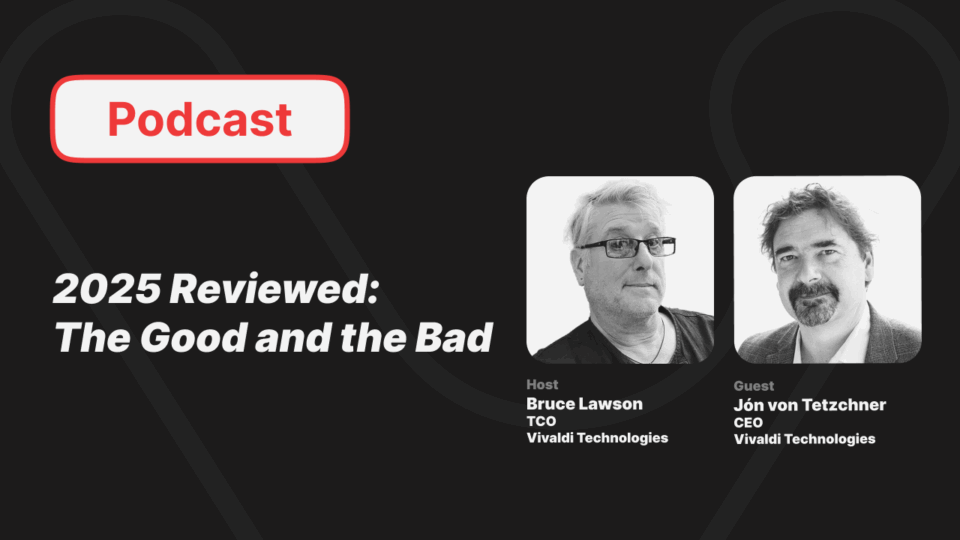
Read this article in 日本語.
Vivaldi is a founder member of the Browser Choice Alliance, which launched today. It’s an informal alliance with Opera, Chrome, Wavebox, Waterfox (and others who remain anonymous through fear of retaliation) who are all prevented from competing fairly on Windows PCs because Microsoft self-preferences its own Edge browser.
Vivaldi is available across a raft of platforms, but the majority of our users install their browser on a device running Microsoft Windows because that’s the dominant PC operating system, currently on 73% of PCs worldwide. Unfortunately, Microsoft has made it increasingly harder for third-party browsers to acquire or keep users on Windows, with an ever-changing repertoire of scare screens, nudges, friction points and deceptive practices.
In September 2023, Vivaldi was the first browser company to write an open letter to the EU expressing concerns over Microsoft’s anti-competitive practices, following the introduction of the Digital Markets Act. Despite Microsoft’s Edge browser meeting the thresholds to be subject to enhanced regulation under the DMA, the EU decided not to designate it.
This leaves consumers reliant on Microsoft Windows, Microsoft Edge and its default search engine, Microsoft Bing, to find, download, install any third-party browser and set it as default. This has proved fertile ground for Microsoft to undermine consumer choice, and undermine European browsers such as Vivaldi.
For example, users reported to us that when they tried to download Vivaldi on a new Windows machine, Microsoft showed a banner warning them “There’s no need to download a new web browser. Microsoft recommends using Microsoft Edge for a fast, secure, and modern web experience that can help save you time and money”.

Even after the user has installed Vivaldi and set it as the default browser, searches from Windows Taskbar open in Microsoft Edge, which then pleads to be restored as the default.
Vivaldi CEO Jon von Tetzchner said,
For a long time, Vivaldi has publicly called out Microsoft for its dirty tricks to undermine consumer choice. Independent browsers like us simply cannot compete fairly with Edge when it is so heavily preferenced in Windows. Regulators need to intervene urgently.
The Web works best when there is real choice and real competition in search engines, social networks and browsers. That’s why we joined the Browser Choice Alliance, to raise awareness in the EU and worldwide, in the hope that regulatory authorities will step in and protect consumers and the browser ecosystem from yet another example of Big Tech over-reach. The BCA is an important alliance in our fight for a better web.


